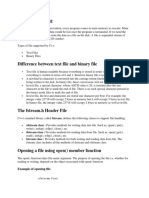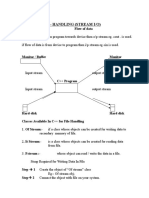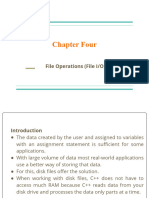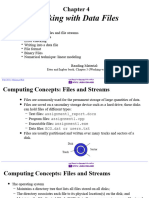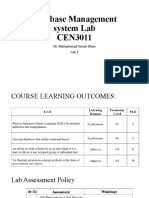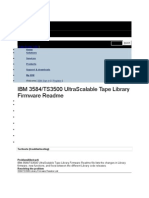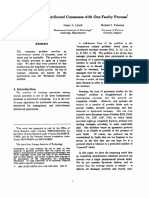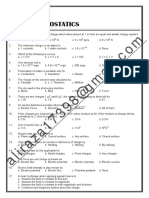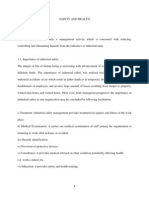0% found this document useful (0 votes)
6 views10 pagesFile Handling
The document provides an introduction to file handling in C++, detailing the essential operations such as opening, reading, writing, and closing files. It explains various methods for input and output, including using stream classes, and demonstrates reading and writing data using both text and binary formats. Additionally, it covers random access file access techniques, including the use of seek functions and stream positions.
Uploaded by
Prashun DhunganaCopyright
© © All Rights Reserved
We take content rights seriously. If you suspect this is your content, claim it here.
Available Formats
Download as PDF, TXT or read online on Scribd
0% found this document useful (0 votes)
6 views10 pagesFile Handling
The document provides an introduction to file handling in C++, detailing the essential operations such as opening, reading, writing, and closing files. It explains various methods for input and output, including using stream classes, and demonstrates reading and writing data using both text and binary formats. Additionally, it covers random access file access techniques, including the use of seek functions and stream positions.
Uploaded by
Prashun DhunganaCopyright
© © All Rights Reserved
We take content rights seriously. If you suspect this is your content, claim it here.
Available Formats
Download as PDF, TXT or read online on Scribd
/ 10




